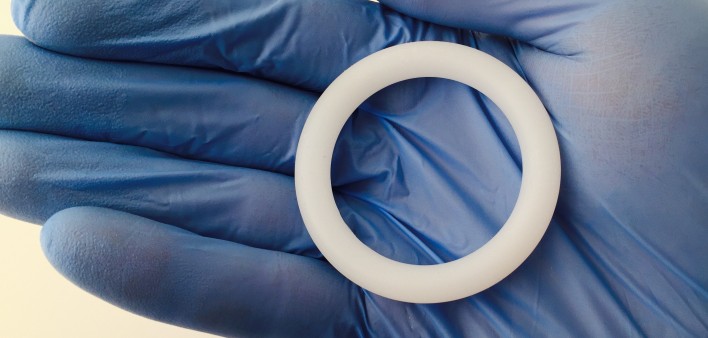The National Institute of Allergy and Infectious Diseases (NIAID) is moving forward with a study into vaginal rings that prevent HIV by releasing the drug dapivirine, according to a press release by the NIAID, which is part of the National Institutes of Health.
The study will be known as the HIV Open-label Prevention Extension (HOPE) or MTN-025 study.
Two previous studies—one called the ASPIRE trial; the other is the ongoing IPM 027 trial—found that the dapivirine ring was modestly successful at preventing HIV among a group of sub-Saharan African women. Those finding were presented at the Conference of Retroviruses and Opportunistic Infections (CROI) last month.
The ASPIRE trial found that the ring cut risk of HIV by 61 percent among women ages 25 and older but provided no statistically significant protection among women younger than 25.
“Although the data show only partial efficacy for the dapivirine ring,” writes the NIAID, “this signal is a welcome development given the rate of infection for women in sub-Saharan Africa. The dapivirine ring merits additional study to begin to answer the scientific questions that remain, and to see if this experimental product can offer increased protection against HIV in an open-label setting in which all participants are invited to use the dapivirine ring.”
NIAID is funding research into nine other long-acting HIV prevention methods, including injectables and implants.







Comments
Comments